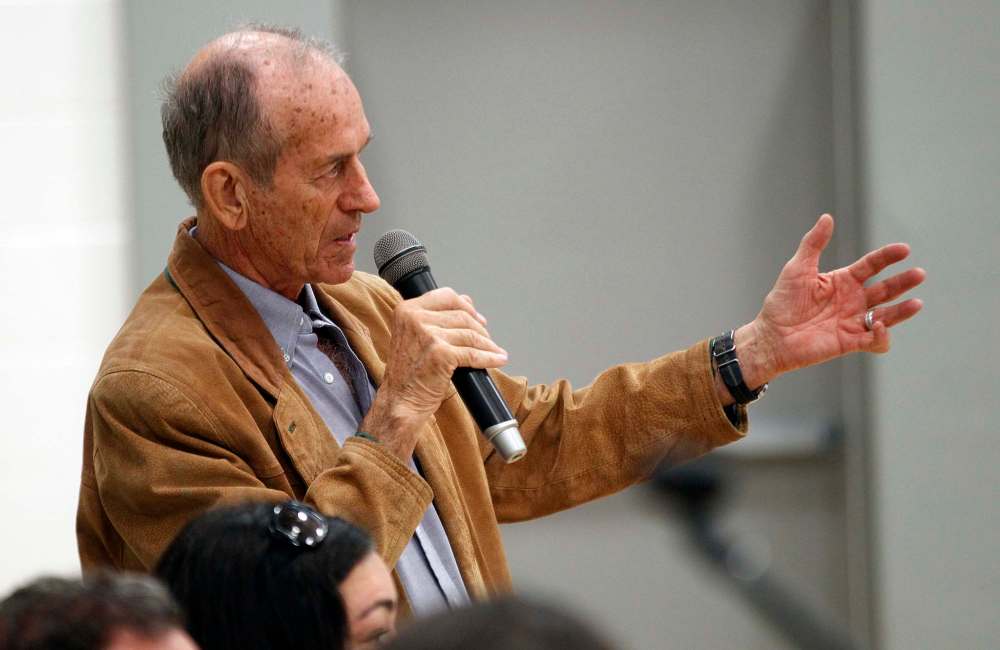Anti-crime activist offers street-level tips
Advertisement
Read this article for free:
or
Already have an account? Log in here »
To continue reading, please subscribe:
Monthly Digital Subscription
$0 for the first 4 weeks*
- Enjoy unlimited reading on winnipegfreepress.com
- Read the E-Edition, our digital replica newspaper
- Access News Break, our award-winning app
- Play interactive puzzles
*No charge for 4 weeks then price increases to the regular rate of $19.00 plus GST every four weeks. Offer available to new and qualified returning subscribers only. Cancel any time.
Monthly Digital Subscription
$4.75/week*
- Enjoy unlimited reading on winnipegfreepress.com
- Read the E-Edition, our digital replica newspaper
- Access News Break, our award-winning app
- Play interactive puzzles
*Billed as $19 plus GST every four weeks. Cancel any time.
To continue reading, please subscribe:
Add Free Press access to your Brandon Sun subscription for only an additional
$1 for the first 4 weeks*
*Your next subscription payment will increase by $1.00 and you will be charged $16.99 plus GST for four weeks. After four weeks, your payment will increase to $23.99 plus GST every four weeks.
Read unlimited articles for free today:
or
Already have an account? Log in here »
Hey there, time traveller!
This article was published 06/01/2020 (2166 days ago), so information in it may no longer be current.
If Winnipeg is serious about making its downtown safer, then businesses, agencies, service providers and neighbours need to work smarter, not harder, says a local man with first-hand experience.
“More of the same will not succeed,” community organizer Sel Burrows said in a report issued Monday. The Order of Manitoba recipient and founder of the North Point Douglas community watch group called Point Powerline slammed a downtown safety report last month by the Manitoba Police Commission, saying it “lacked an understanding of the issues and neglected the reality (of) most people living in and around the downtown.”
The police commission’s 46-page report made 27 recommendations including more study on the use of street lighting “to achieve a sense of public safety,” and a public-education campaign on how to be street smart. Burrows responded days later with his own recommendations, including doubling the number of community police officers and improving communication with people who live downtown. He followed up on Monday, with more specific recommendations to make downtown safer and friendlier by nipping crime in the bud or before it’s committed.

They include calling for the creation of a tip line for downtown folks to report problems and have them addressed by the right agency with the right resources before a crime occurs. Punjabi-Canadian cab drivers have told him they’d report the trouble they see around the clock if they could leave a tip anonymously in their first language. Burrows has seen success with tip lines like the one in his community.
“They need to be tailored to the people you want calling.”
Things need to change, said Burrows, who sent copies of his latest report to city officials and Winnipeg’s Downtown BIZ on Monday. It recommends paramedics drive non-violent intoxicated people home instead of waiting for police to take over, tying up so many front-line workers. Downtown hotels, it said, need to enforce their own policies that ban sex-trade workers instead of turning a blind eye. Nightclubs that won’t co-operate with police and continue to allow criminals and fights inside that spill out onto the street need to be identified publicly, it said. The Residential Tenancies Branch that promised to allow landlords quicker eviction of drug dealers should live up to it, said the report.
Neighbours, police and organizations joining forces have made his community safer, and that can work for the downtown, said Burrows.
“Nobody believes me but this works,” said the retiree, who is frustrated more resources and energy aren’t dedicated to preventing crimes.
“Using the Criminal Code is a very slow, blunt instrument,” he said. Addressing problems that come from poverty, addiction and homelessness and putting drug dealers and gangs on notice are quicker, less expensive ways to make the downtown safer, he said.
“We should be using the criminal justice system minimally for really serious issues,” said Burrows. In his neighbourhood, people aware of criminal activity nearby report it to the Point Powerline and community police officers will go and talk to the offender.
“Having a highly-skilled professional go there and say ‘we know what you’re doing — please stop or we’ll send you back to Stony (Mountain Institution)'” is highly effective, he said in an interview. “That’s half an hour of police time compared to 22 police officers, many on overtime, to do a drug raid.”
He plans to release a third report next month on how to increase “general civility” by responding to the root causes of crime and anti-social behaviour.
carol.sanders@freepress.mb.ca

Our newsroom depends on a growing audience of readers to power our journalism. If you are not a paid reader, please consider becoming a subscriber.
Our newsroom depends on its audience of readers to power our journalism. Thank you for your support.









